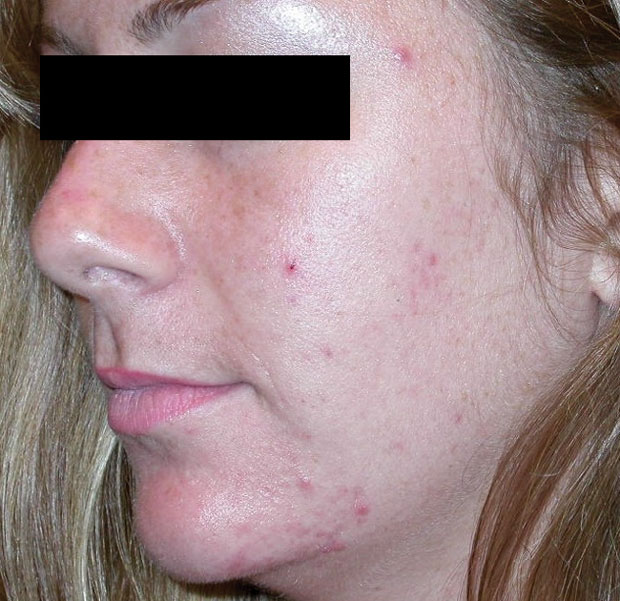First medication for severe frostbite approved
This column reviews recent recalls, alerts, and approvals.
Recalls, warnings, market withdrawals
A class I recall of Atrium Express dry suction dry seal chest drain (models 4000-100N and 4050-100N), in response to Nurse Assist LLC's November 2023 recall of 0.9% sodium chloride irrigation USP and sterile water for irrigation USP, over sterility concerns. If a chest drain is knocked over, the water in the air leak monitor chamber could migrate to the drainage fluid collection chamber, potentially exposing the patient to an infectious pathogen. Use of the affected syringe may cause local infections, abscess empyema, mediastinitis, pyothorax, sepsis, and death. There have been no reports of injury or death.
A class I recall of BrightView, BrightView X, and BrightView XCT imaging systems by Philips as the detector may unexpectedly fall due to a component failure. The recall is a correction, not a product removal. Use of the affected device may cause neck injury, contusion, traumatic brain injury/concussion, death, crush injury, fracture, laceration, muscle, or ligament sprain/strain.
Withdrawal of approval of Pepaxto (melphalan flufenamide), which was approved for use in combination with dexamethasone to treat certain patients with multiple myeloma. The final decision to withdrawal the treatment was based on findings from a confirmatory study that did not confirm its clinical benefit. Available evidence also demonstrates that Pepaxto is not shown to be safe or effective under its conditions of use.
A safety communication on risks related to smartwatches or smart rings that claim to measure blood glucose levels without piercing the skin. The FDA has not reviewed the safety and effectiveness of these devices and their use could result in inaccurate measurements of blood glucose levels. The FDA recommends talking to patients about the risk of using unauthorized blood glucose measuring devices and helping them select an appropriate, FDA-authorized blood glucose measuring device, if needed.
A safety communication about the potential risk of serious complications with use of the BioZorb Marker and BioZorb LP Marker devices by Hologic, Inc. The devices are implanted in soft tissue to mark the site for future medical procedures, such as radiation for breast cancer treatment. The FDA received reports of adverse events with use of the devices in breast tissue, including infection, fluid buildup, the devices moving out of position or breaking through the skin, pain, discomfort from feeling the device in the breast, rash, other complications possibly associated with extended resorption time, and the need for additional medical treatment to remove the device.
A safety communication to not use certain Cardinal Health Monoject Luer-Lock and enteral syringes following a recall of the syringes by the company. Dimensional changes may result in recognition, compatibility, and pump performance issues, such as overdose, underdose, delay in therapy, delay in occlusion alarms, and delay in feeding.
Warning letters sent to US Chem Labs and Synthetix Inc., doing business as Helix Chemical Supply, for introducing unapproved and misbranded semaglutide and tirzepatide products into interstate commerce.
A recall of Equate lubricant eye ointment, Equate stye lubricant eye ointment, CVS Health lubricant eye ointment, and Lubricant PM ointment due to potential lack of sterility. The recall, by Brassica Pharma Pvt. Ltd, includes products with expiration dates ranging from February 2024 to September 2025. The products carry a potential risk of eye infections or related harm.
Miscellaneous
An update on recommendations for certain Medtronic Electromyogram Endotracheal Tubes and risk of airway obstruction. Medtronic sent a follow-up letter with updated instructions for use, new training material, and Unique Device Identifier information for the NIM CONTACT Reinforced EMG Endotracheal Tube and NIM Standard Reinforced EMG Endotracheal Tube. Updates include information on what to do when airway obstruction occurs.
An update on medical device reports that are reportedly associated with the breakdown or suspected breakdown of the polyester-based polyurethane (PE-PUR) foam used in the Philips Respironics ventilators, BiPAP machines, and CPAP machines included in a June 2021 recall. Since April 2021, the FDA has received more than 116,000 reports, including 561 reports of death, reportedly associated with the PE-PUR foam breakdown or suspected foam breakdown.
Approvals
Iloprost (Aurlumyn) injection, the first medication to treat severe frostbite in adults to reduce the risk of finger or toe amputation. In an open-label trial, need for amputation was observed in no patients receiving iloprost alone, in 19% of patients who received iloprost with other medications, and in 60% of patients who did not receive iloprost. The vasodilator received an orphan drug designation. Common side effects include headache, flushing, heart palpitations, fast heart rate, and nausea, among others.
lifileucel (Amtagvi), the first tumor-derived T-cell immunotherapy for adult patients with unresectable or metastatic melanoma previously treated with a PD-1 blocking antibody, and, if BRAF V600 mutation positive, a BRAF inhibitor with or without an MEK inhibitor. Its safety and efficacy were evaluated in a multicenter study that included 73 patients who received the treatment. The objective response rate was 31.5%, including three (4.1%) patients with a complete response and 20 (27.4%) patients with a partial response. Among patients who were responsive, 56.5%, 47.8%, and 43.5% continued to maintain responses without tumor progression or death at six, nine, and 12 months, respectively. The treatment includes a boxed warning on potential prolonged severe low blood count, severe infection, cardiac disorder, worsened respiratory or renal function, or fatal treatment-related complications.
A new indication for omalizumab (Xolair) injection to reduce risk of allergic reactions, including anaphylaxis, in certain adults and children with immunoglobulin E-mediated food allergy. Patients must continue to avoid foods they are allergic to, and the treatment is not approved for emergency treatment of allergic reactions, including anaphylaxis. In a study of 168 pediatric and adult patients allergic to peanuts and at least two other foods, 68% of those who received the drug for 16 to 20 weeks were able to eat a single dose of peanut protein without moderate to severe allergic symptoms, compared to 6% given placebo. The treatment carries a boxed warning for anaphylaxis.
Tepotinib (Tepmetko) for adult patients with metastatic non-small-cell lung cancer (NSCLC) harboring mesenchymal-epithelial transition (MET) exon 14 skipping alterations. A multicenter study found that among 164 treatment-naive patients, overall response rate (ORR) was 57%, with 40% of responders having a duration of response (DOR) of at least 12 months. Among 149 previously treated patients, ORR was 45%, with 36% of responders having a DOR of at least 12 months.
Osimertinib (Tagrisso) with chemotherapy for adult patients with locally advanced or metastatic epidermal growth factor receptor-mutated (EGFRm) NSCLC. The approval is based on results of a phase III trial that found osimertinib with chemotherapy reduced the risk of disease progression or death by 38% compared to monotherapy with the drug.
Irinotecan liposome with oxaliplatin, fluorouracil, and leucovorin, for first-line treatment of metastatic pancreatic adenocarcinoma. Efficacy was evaluated in a randomized, multicenter trial of 770 patients with metastatic pancreatic adenocarcinoma who had not previously received chemotherapy in the metastatic setting. Median overall survival was 11.1 months in the treatment arm and 9.2 months in the control group. Common adverse reactions included diarrhea, fatigue, nausea, vomiting, and decreased appetite, among others. The treatment received an orphan drug designation.
Edwards EVOQUE Tricuspid valve replacement system, an artificial heart valve that can be implanted using a delivery catheter without open-heart surgery. The EVOQUE valve is intended to treat patients with a severely leaky tricuspid valve—often caused by an enlarged heart or damaged native valve flaps—who continue to experience symptoms despite being on heart failure medications. This device is the first transcatheter replacement device indicated for use in the tricuspid position.
FARAPULSE pulsed-field ablation system from Boston Scientific to treat paroxysmal atrial fibrillation using electrical pulses to ablate cardiac tissue. The system received a breakthrough device designation and may reduce risks seen with conventional thermal ablation.
First-time generic drug approvals
Methylene blue Injection USP, 10 mg/2 mL (5 mg/mL) and 50 mg/10 mL (5 mg/mL) in single-dose vials, for the treatment of pediatric and adult patients with acquired methemoglobinemia (Brand name: ProvayBlue Injection)
Vasopressin in 5% dextrose Injection, 20 units/100 mL (0.2 units/mL), in single-dose vials, to increase blood pressure in adults with vasodilatory shock who remain hypotensive despite fluids and catecholamines (Brand name: Vasostrict injection)
Dabigatran etexilate, 75 mg, 110 mg, and 150 mg, to reduce the risk of stroke and systemic embolism in patients with nonvalvular atrial fibrillation; for the treatment and prophylaxis of deep venous thrombosis (DVT) and pulmonary embolism (PE); for the prophylaxis of DVT and PE in certain patients; and for the treatment of and to reduce the recurrence of venous thromboembolic events (Brand name: Pradaxa)
Memantine and donepezil hydrochloride extended-release capsules, 21 mg/10 mg and 28 mg/10 mg, for the treatment of moderate to severe dementia of the Alzheimer's type in patients stabilized on 10 mg of donepezil hydrochloride once daily (Brand name: Namzaric extended release)
Note: The FDA states that drugs are not always commercially available immediately after approval.




